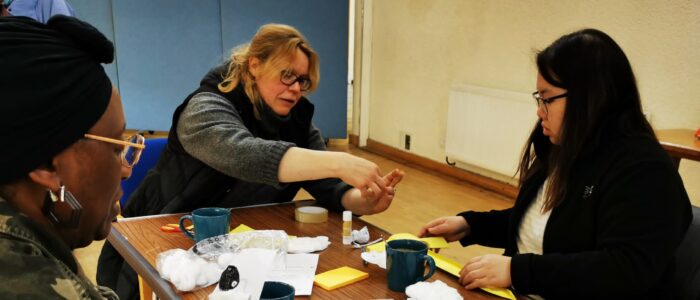You like austerity!

“You like austerity!”
This was the essence of a charge put to me recently. I was flabbergasted; then my accuser quoted one of my oft-used phrases: ‘faith is the first in and the last out’. I could see what was being said, but context is everything. In fact, I have been using that phrase for a long time to emphasise thelongevity, and to some extent, the reach of faith communities. One of the problems of the UK system is that much is linked to parliamentary cycles and spending reviews. Governments and minsters change, and with them the budget, which determines funding, changes too, thereby making long-term planning difficult. Of course, government and politics which are held accountable by the electorate is laudable. However, this system does not encourage consensus, as each administration seeks to exert its authority and tried to demonstrate difference. But the economic reality does not change with the election cycle and therefore forces a commonality of restriction on parties of every hue. Out of this reality, there is the possibility of cross-party agreement, even if it is unstated. The two areas that come to mind is with the DWP’s Work Programme and it’s similarities with the previous government’s Flexible New Deal, or the QIPP (Quality, Innovation, Productivity and Prevention) agenda for health of the last Labour government and the pursuit of efficiency of the Coalition.
So what does this do for the position of voluntary sector and faith-based organisations? It certainly is not a great time to be a medium-sized organisation, the VCS’ ‘squeezed middle’, subjected to reduced government funding or sub-contractor conditions, always requiring more for less; seemingly unable to determine their own destiny and having to make a decision whether to play a part in unpalatable programmes or to fold. In fact, it was this growing reality which led us in the FaithAction office to hold a workshop on social enterprise with Greenwich University in 20111. Our thinking here was that, with the pressure of cuts likely to affect the voluntary sector disproportionately, enterprise would give an opportunity for diversification of income as well as developing a surplus which could be used to support the aims of organisations.
Times of hardship can also be times of possibility. So, although medium and larger organisations reliant on public sector funding may face difficulties, there is perhaps an opportunity for more radical solutions. Stephen Timms MP often remarks to me that, if asked if five years ago what would be the response to hunger in the UK, few would have pointed to faith groups as a significant response. Yet, this is what has happened with food banks throughout the UK. This is not to say this is what the solution should be, just to point to the reality that food banks have sprung up in response.
We started looking at this change of climate in our response to Big Society, ‘How to eat an elephant’. The economic reality has presented need on the doorsteps of faith communities. It has meant we have had to face those around us in a way we had previously been able to avoid. The Olympics and the Jubilee also gave opportunity for commonality and connection, at the same time as concerns were being raised by individualised existence; epitomised as one of the root causes of the housing crisis we face, the raise in mental health issues, loneliness and unnecessary winter deaths of the elderly and the first detox clinic for ‘cyber-addiction’. A quick flick of TV channels will show you images of celebrity chefs bringing people together with the power of food, new housing designs bringing happiness, and unusually formed choirs bringing a sense of community. How much more is the potential in faith?
The extended family setting of faith reminds me of the saying, ‘God gives us our family, thank God we can choose our friends!’ I was recently talking to a young man who was chewing through the out-workings of his faith. He was talking about commitment to the people of his faith community, and what he expressed was that he understood the commitment was not just to the people he liked or naturally had some social connection with, but to everyone, including those who would not be naturally be his ‘friends’. It is this bedrock of faith communities which can stand as an alternative to a self-packaged life projected through Facebook profiles and selective interactions, rather the spontaneous interactions of family.
There is a greater sense of a ‘civic space’ where room is made for ‘service to the public’ and self-funded or partially public-funded projects are gaining prominence. The Together in Service (TiS) programme which FaithAction is leading for the Department for Communities and Local Government is an example of this partial funded programme. TiS has been set up to put a spotlight of faith-based social action, by providing match-funded grants of £2,000 and £5,000. To a certain extent, nothing has changed; if you can fund a programme yourself, you can do what you want, within reason and the scope of UK law. It’s just that the withdrawal of public funding and public services has left a space where people see a greater role for faith and community groups to play a role. Not all services can be replaced by the voluntary sector. In fact, that surely would not be right; we are tax-payers who pay all manner of taxes for services provided by the state. I do not expect any government radically reducing taxation to allow people to give to civil society instead. There has to be a twin track. There are services that voluntary sector organisations should compete to provide, there are many they should not, there are areas the state should not be involved in, and there are places that is only appropriate for VCS to be.
Phillip Blond of Respublica talks of the need for a new settlement2; by this, I think what is meant is a new understanding of what the role of the state should be, what the role citizens should have, and how faith-based organisations and community groups fit into this.
When I was a teacher, I remember hearing a parent exclaim, “I don’t discipline my children, that’s what teachers are for!” This showed a total abdication of responsibility and a sorry state of affairs; but I wonder whether I have a wrong view of what public services should do for me and what my role should be.
So do I like austerity? No, but I do appreciate that the circumstances we find ourselves in forces a new time of reflection.
[1] FaithAction’s Guide to Social Enterprise ^
[2] ResPublica, Phillip Blond, A New Political Settlement ^



